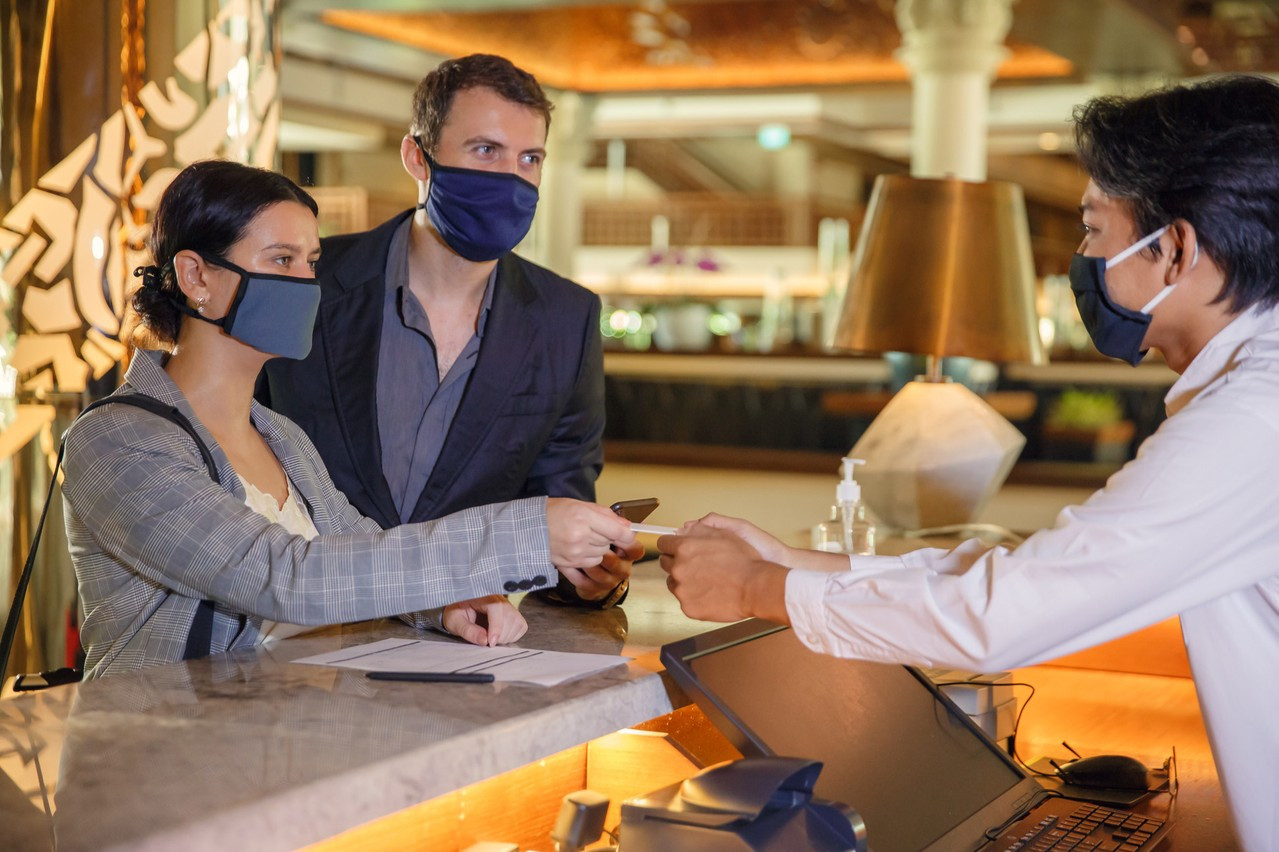At the Hotel Cravat in the capital’s centre, "it's simple, they are the only customers,” explains hotel manager Carlo Cravat. Last night, only 10 of the establishment's 59 rooms were occupied: 50% by Belgians, 50% by French. Normally in this period, however, "I have very few cross-border clients because they can return home at night”, he says, adding that clients are rather "English, Scandinavians, who have more than two or three hours’ journey". Most current clients come from the greater region, according to Cravat; however, they are not just coming to take advantage of their €50 vouchers offered by the government, as those are "used very little," according to him.
The same goes for the Graace Hotel in Luxembourg City, where those coming from the border areas are more numerous than usual. "I think it’s mainly because the bars and restaurants are open, whereas that is not the case in their countries," says manager Isabelle Coltan. On the other hand, here "many come to take advantage of their voucher". This does not compensate for the decline in activity, however, with an occupancy rate of less than 20% in the establishment's 30 rooms.
Seeking some relaxation
"It's madness," explains an employee of a Grevenmacher hotel, who prefers to remain anonymous. Last weekend was full, with 70% of customers coming from France and Belgium. "Usually, it's rare that we have so many [of them]," the employee explains. “They tell us clearly, on site or by phone, that they are coming here because everything is closed [where they live]. Some even ask us for places to party or dance. They don't understand that there are restrictions here too.”
At the Mondorf Parc Hôtel, "next weekend is sold out both in the hotel and in the restaurants," says director Patrick Le Meur. The thermal spa area attracts both clients who have come to use their €50 vouchers and people who do not work in Luxembourg but are looking for a little relaxation for a weekend. The saunas and swimming pools are open, as is the fitness room, while only the jacuzzis and hammams remain closed.
Prior to the pandemic, Belgians represented 45% of the hotel's clientele, according to its manager, but that figure has risen to 55%. Other the other hand, French clientele remains stable, around 30%. "I think that in France the controls are stricter with certificates to be completed; on the other hand in Belgium, it is not recommended to come to Luxembourg, but [this is not reflected in] the reservations,” Le Meur explains.
No jealousy amongst neighbours
Those coming in from across the borders on weekends take the opportunity to do their shopping or eat at restaurants. Last weekend, there was a line to eat at Brasserie Guillaume in Luxembourg City centre. "We can see that there are a lot of people from the outside who come to eat," says manager Cyrille Perchet.
A few steps away, Strogoff is experiencing more of these visitors as well--representing around half of current clientele. A fact which “is saving us”, according to Jennifer, executive assistant. "We lost 20 to 40% of turnover compared to last year."
"Luxembourg has always had a very good end of the season," says François Koepp, general secretary for hospitality federation Horesca. Does he take a dim view on the influx of cross-border people? “No, definitely not,” he replies. "Companies have made arrangements to ensure customer safety." For him, these additional revenues do not compensate for the losses due to teleworking, for example.
President of Horeca in Wallonia, Thierry Neyens, says, "We do not blame restaurant owners who take advantage of this opportunity,” but adds that for Belgian establishments closed at the border, seeing their customers leave for Luxembourg legally is "hard to accept."
He insists: "It's not jealousy, it's incomprehension.” He would prefer more clarity from the Belgian government, which only says on its coronavirus news site as advice: "It is better not to travel abroad.”
On the French side, Linda Vitalone--restauranteur who heads the Semper Linda in Villerupt--says, "I do not think that it harms us", but she does find it "a pity that we cannot come to an agreement between countries".
A version of this article was originally published in French on Paperjam.lu and has been translated and edited for Delano.
